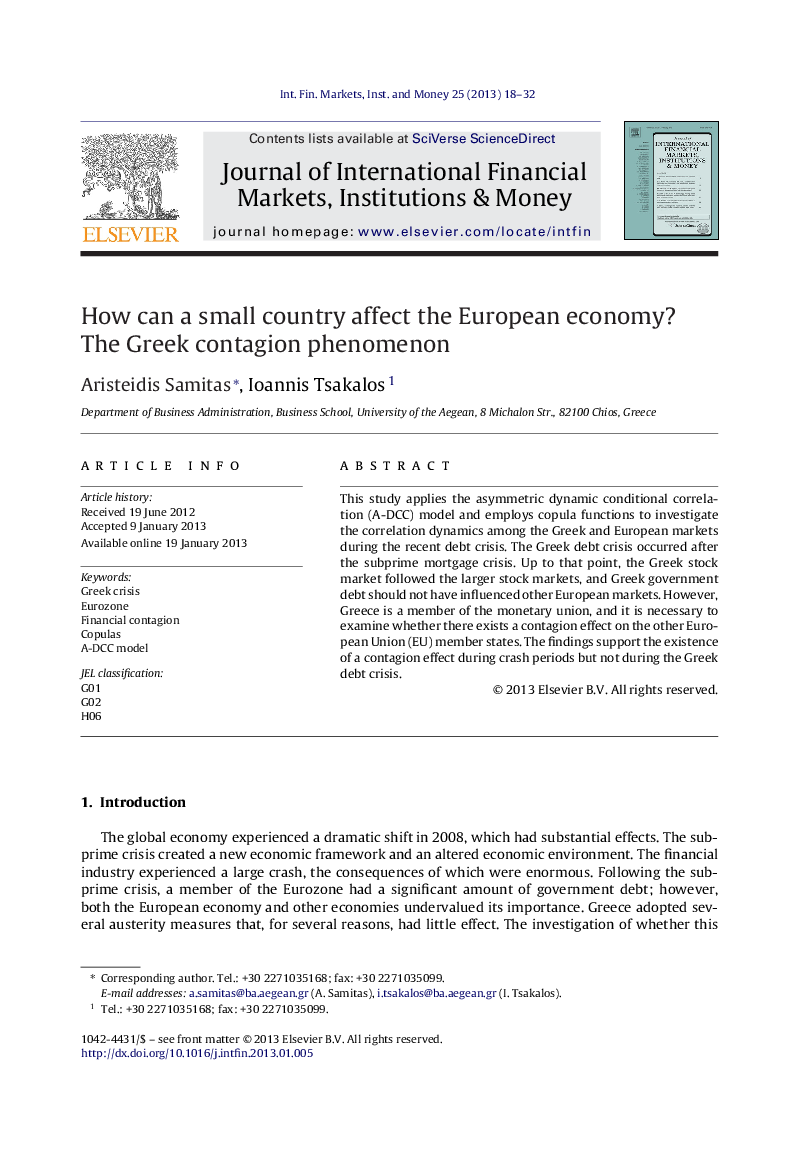| Article ID | Journal | Published Year | Pages | File Type |
|---|---|---|---|---|
| 964039 | Journal of International Financial Markets, Institutions and Money | 2013 | 15 Pages |
This study applies the asymmetric dynamic conditional correlation (A-DCC) model and employs copula functions to investigate the correlation dynamics among the Greek and European markets during the recent debt crisis. The Greek debt crisis occurred after the subprime mortgage crisis. Up to that point, the Greek stock market followed the larger stock markets, and Greek government debt should not have influenced other European markets. However, Greece is a member of the monetary union, and it is necessary to examine whether there exists a contagion effect on the other European Union (EU) member states. The findings support the existence of a contagion effect during crash periods but not during the Greek debt crisis.
► We examine the correlation between the Greek and international stock markets. ► We employ copula functions and the A-DCC model. ► Financial contagion exists.
